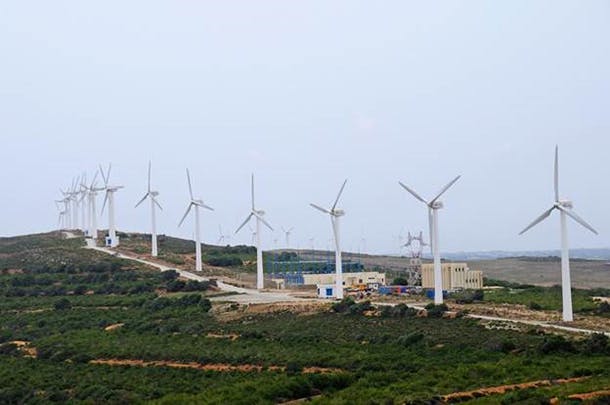By Kaysie Brown and Dinah McLeod

United Nations Secretary-General Ban Ki-moon has been known to say, “We need to marry the private sector’s greatest strengths with the public sector’s greatest challenges.” At first blush, it may seem odd – the notion of international development and business communities working together. After all, as the story goes, a business’ bottom line is to generate profit, while development is the responsibility of policymakers or NGOs.
But we are in a new era in which profit and inclusive, sustainable development are no longer regarded as exclusive of each other, and Ban Ki-moon’s words could not be more accurate. Launched in January 2016 at the World Economic Forum’s annual meeting in Davos, the Business and Sustainable Development Commission, of which the UN Foundation is a founding member, is building on the momentum created by last year’s launch of the Sustainable Development Goals to make the case that sustainable development represents a strong business opportunity for companies of all sizes and sectors.
In contrast to the Millennium Development Goals, consultation around the global goals included the private sector, and with good reason: Early estimates suggest that in order to achieve the goals, the global community will need to unlock trillions of dollars in investment each year. The private sector currently accounts for 60% of GDP, 80% of capital flows, and most of the jobs in the developing world. It is clear that the business sector will be pivotal to achieving an agenda focused on expanding opportunity and ending poverty in a sustainable manner.
To mobilize such huge resources, the private sector has to understand why the global goals are worth their time; for example, helping promote job growth means new consumers and addressing needs in poor communities means new markets. Some companies, such as Grundfos and Unilever, already recognize that sustainable development can enhance and drive their businesses into the future. Ericsson, another early adopter, is applying the Sustainable Development Goals as a framework for measuring its societal impact, while Aviva is leading the charge toward sustainable investment. Other companies, such as LADOL and the Made in Africa Initiative, are using the principles of the global goals to create entirely new industrial opportunities in Africa. It’s worth noting that the CEOs of these companies are also members of the Business Commission.
To achieve lasting change, however, these front-runners need to be joined by others on a massive scale and at all levels. And that is why the Commission was created – to talk directly to the private sector – globally, and not only the early leaders and adaptors. Using the language of business, the Commission will argue that sustainable development represents an unprecedented market opportunity in addition to being good for the world, and that achievement of sustainable development lies beyond the power or responsibility of governments alone.
With over 30 CEOs and business leaders from around the world, including Bob Collymore of Safaricom, Hendrik du Toit of Investec Asset Management, and Ken Frazier of Merck, the Commission represents diverse industries from finance and insurance to consumer goods and services and beyond. Importantly, it also includes Lise Kingo, Executive Director of the UN Global Compact, establishing a key link to the Compact’s longstanding corporate sustainability efforts that have galvanized 13,500 signatories to date. Last week in New York the Compact gathered over 800 leaders in the business and sustainability space to explore just how this global network can build on its sustainability principles to drive meaningful development around the Sustainable Development Goals.
Early next year, the Commission will release a flagship report outlining a powerful case for sustainable business that will be the foundation from which it launches a variety of other activities to help grow the number of business leaders who really “get” the opportunity of the Sustainable Development Goals.
For the world to have the chance to achieve sustainable development outcomes, there must be genuine partnership between people, their governments, civil society, and the private sector. Sustainable development on the scale needed for our world to prosper equitably is possible, but only if businesses assume a fuller role in driving development. In the past, policymakers and businesses may have been seen as strange bedfellows. For the future, the two must work more closely than ever before.
Dinah McLeod is the Deputy Director of the Business and Sustainable Development Commission, based in London. Kaysie Brown is the UN Foundation’s Special Advisor for Policy and Strategic Initiatives and a member of the Research Advisory Group for the Commission.
[Photo: World Bank/Dana Smillie]



 View All Blog Posts
View All Blog Posts